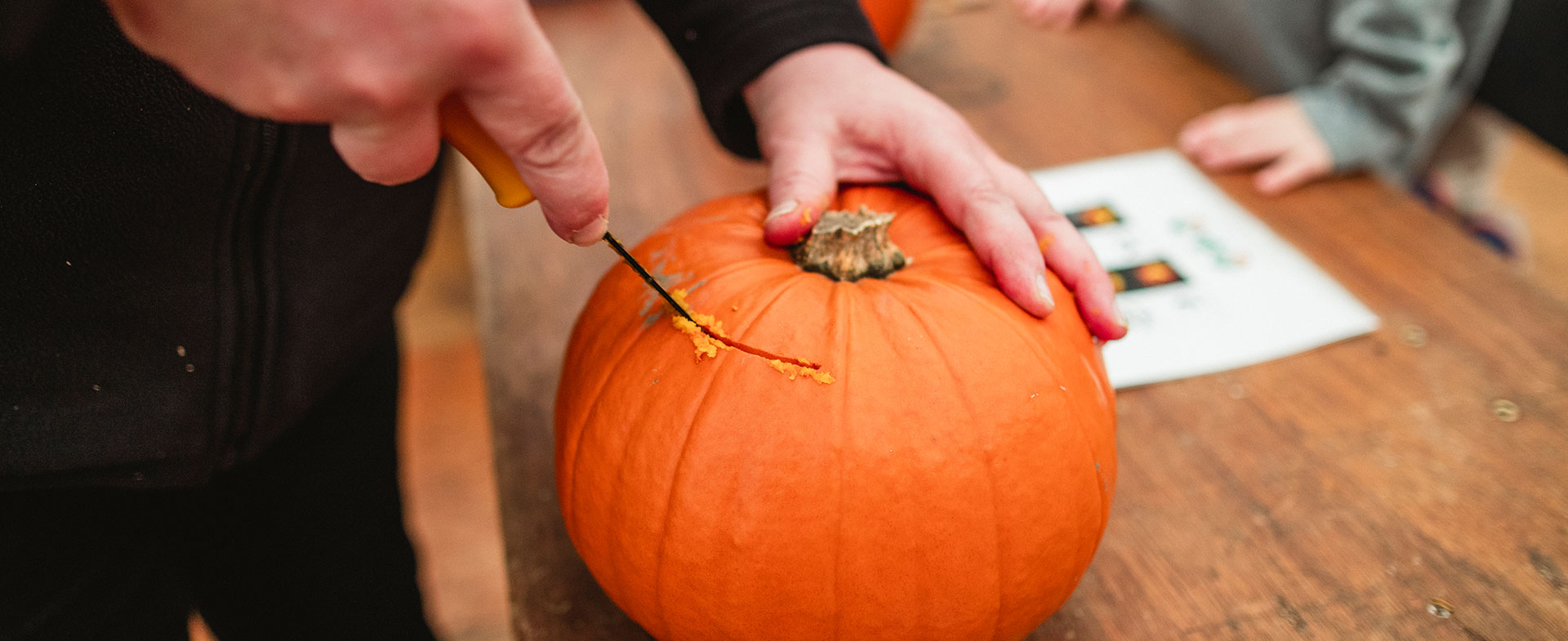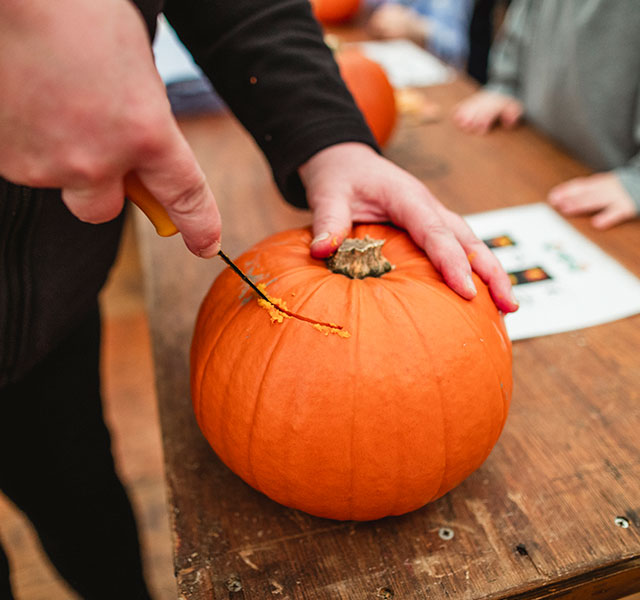If you haven’t carved your pumpkins yet, beware: pumpkin-carving injuries are the most common Halloween-related injuries, says the U.S. Consumer Product Safety Commission. They reported that, between October 2018 and November 2018, 44% of Halloween-related injuries were caused by pumpkin carving.
“The most common injuries from pumpkin carving are likely hand puncture wounds and cuts,” says Ryan Desgrange, a physician assistant specializing in orthopedics at Henry Ford Health. “Although if it’s a really serious injury, it could involve a severed tendon or fractured bone.”
Pumpkin Carving Safety Tips
Staying vigilant while pumpkin carving is key, says Desgrange. He offers tips to reducing the likelihood of injury:
- Invest in a quality pumpkin carving kit. Quality carving materials are a necessity, says Desgrange. Cheap carving kits can break while carving, increasing the odds of inadvertently cutting yourself. Instead, invest in a quality kit that you can use for years to come. "That being said, if you have to make do with household utensils, use a serrated blade instead of sharpening a knife, as it will help decrease the chance of injury," says Desgrange. (The blade does not necessarily have to be sharp, as this too can increase the likelihood of harm. The majority of carving kits have dull, serrated edges that are great for cutting pumpkins, and that decrease the chances of cutting your hand.)
- Keep power tools locked up. “Use them for what they’re intended for—home improvement projects. Not pumpkin carving,” says Desgrange. “Although they may quicken the carving process, they increase the chance of sustaining a serious injury.”
- Use smooth, short cutting strokes. Take your time carving rather than moving as quickly as possible, says Desgrange. And using short, smooth strokes will give you more control and decrease the likelihood of serious injury if your hand slips.
- Be aware of your surroundings. If someone is holding the pumpkin to stabilize it, be aware of where their hands are at all times.
- Keep the pumpkin dry. A dry surface will help prevent your hand and the knife from slipping.
- Use appropriate lighting. “While it’s fun to use candles and create that Halloween ambiance, it’s self-explanatory that if you can’t see what you’re doing, you could cut yourself or someone else,” says Desgrange.
- Involve your kids in pumpkin carving—without having them carve. “There are plenty of things a young child can do,” says Desgrange. “They can draw what they want the carving to look like on the pumpkin, they can get their hands dirty and get the guts out, they can organize the pumpkin seeds on a baking sheet for you to roast. You can have your kids take ownership of their pumpkins (their masterpieces) without them doing the dangerous part.”
What To Do If You Sustain A Wound
Even if you take precautions, sometimes accidents happen. Here’s what to do if you or your child gets injured:
- Remain calm. Run the cut under cold or room temperature water so you can see the depth of the injury.
- With ice, apply sustained pressure over the wound for 10 to 15 minutes to control the bleeding.
- If the cut looks deep—deep enough to require stitches—head to urgent care or the ER. One way to tell? “If you apply a gauze bandage over it and the bleeding soaks through the bandage, you should see a professional,” says Desgrange.
Subscribe to receive a weekly email of our latest articles.
To find a doctor at Henry Ford, visit henryford.com or call 1-800-436-7936.
Ryan Desgrange, MS, PA-C, is the director of advanced practice providers for orthopedics at Henry Ford Health and specializes in bone health and fracture prevention, as well as care for broken bones and trauma. He sees patients at several locations across southeast Michigan and is available for scheduled video visits.



